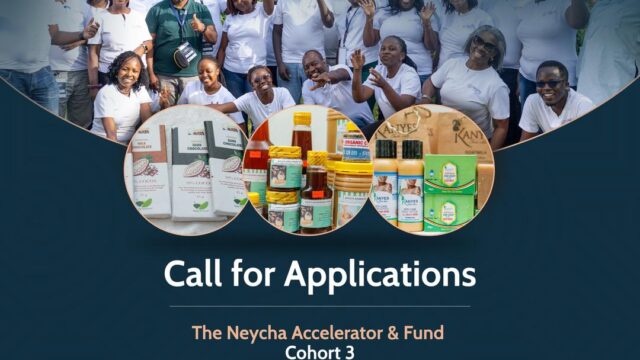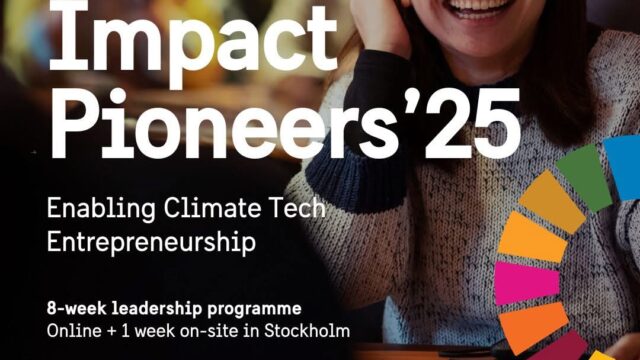With 16 fully funded fellowships : Apply for the International Short Course on Navigating Water Challenges: Climate Change and Resource Management
93rd UNEP/UNESCO/BMUV International Short Course - Navigating Water Challenges: Climate Change and Resource Management (SC93)
Timeline: October 5, 2025 – November 9, 2025 (On-site in Dresden)
This is a full-time, interactive course that provides in-depth personal guidance and fosters lasting connections within a peer group of global professionals.
Water is a crucial resource that supports life, ecosystems, and human societies. Beyond its practical value, water is key to achieving the Sustainable Development Goals (SDGs) that drive global progress. Its significance spans multiple sectors such as health, agriculture, energy, and infrastructure. Central to SDG 6 is ensuring universal access to clean water and sanitation—a fundamental human right. Ensuring access to water not only meets basic needs but also empowers communities, supports biodiversity, stimulates economic growth, and strengthens resilience against climate change.
The effects of climate change are increasingly challenging the availability, quality, and management of water resources worldwide. Variations in temperature, changes in precipitation patterns, and extreme weather events are disrupting the hydrological cycle, affecting both the supply and demand for water, and intensifying issues such as water scarcity and pollution. Additionally, rising populations, urbanization, and agricultural and industrial growth are putting further pressure on already strained water systems.
To address these complex issues, professionals with both scientific expertise and practical experience in water resource management and climate change adaptation are urgently needed. This course is designed to provide participants with a comprehensive understanding of how hydrological processes and climate dynamics intersect, as well as the skills to develop and implement effective water management strategies.
Course Concept and Objectives
The course covers the intricate relationship between water resources and climate change. It includes scientific, technical, and policy-focused modules on water management in the context of climate change, blending theoretical knowledge with hands-on applications. This multidisciplinary approach ensures a well-rounded understanding of the challenges. Participants will delve into hydrology and climate science, examine the impact of climate change on water resources, and develop strategies for sustainable water management. Key topics include:
- The effects of climate change on hydrological processes and water ecosystems
- The concept of planetary boundaries and doughnut economics
- Water-related challenges in the context of the SDGs
- Impact and risk assessment of climate change on water resources
- Adaptive management strategies for water systems
- Review of international and national water management policies
By the end of the course, participants will create individual Post-Training Action Plans (PTAPs) to apply the knowledge they’ve gained to their professional contexts.
Why Participate in This Course?
- Experience the expertise of the CIPSEM team, which specializes in creating meaningful training programs for professionals in developing countries.
- Engage in a full-time, 4-week learning experience, featuring classroom sessions, field trips, group work, and guided self-study.
- Learn from leading international and German facilitators.
- Be motivated by sharing experiences and forming strong connections with fellow professionals.
- Become part of a large, global network of over 2,800 environmental experts from 146 countries.
- Apply the skills learned through the creation of post-training action plans.
- Alumni have the opportunity to apply for innovation fellowships to support the implementation of their action plans, with grants of €2,000.
Five partial fellowships are also available. These cover housing, local transport, and tuition, but applicants are responsible for their transportation to and from Dresden, insurance, and additional living expenses. These fellowships are open to applicants from non-DAC countries, provided their professional work is focused on a DAC country.
Application and Participation
Applications for this course are accepted from February 25 to April 1, 2025, through CIPSEM's online portal. The selection process will identify 21 participants (16 full fellowships and 5 partial fellowships), with notifications sent in June 2025.
Successful applicants will receive a Certificate of Proficiency in Navigating Water Challenges: Climate Change and Resource Management.
Please note that the listed course dates include the training period from October 9 to November 5, 2025, as well as the four days allocated for arrival and departure.
Don't miss out on the application deadline which is April 1, 2025.
Additional Information
This course is intended for professionals who are responsible for policy decisions and practical measures in government ministries, local authorities, and NGOs in developing countries and emerging economies. Participants should be motivated to explore water management and climate change concepts, with a focus on their application. A university degree (e.g., BA, BSc) in a relevant field is required, along with English proficiency and endorsement from the nominating institution.
With 16 fully funded fellowships : Apply for the International Short Course on Navigating Water Challenges: Climate Change and Resource Management 0 reviews
Login to Write Your ReviewThere are no reviews yet.







